 With the aid of QR funding (Faculty of Management), I conducted field-research in Ubud, Indonesia in July 2019. I went into the field with two research questions, linked to poverty alleviation and sustainable community development. What is the impact of spiritual/wellness tourism on local people and communities in Ubud? What are the strategies that can help provide micro-entrepreneurship opportunities for the poor? I interviewed multiple stakeholders including a former Indonesian Minister of Tourism, a spiritual leader in Ubud, a representative of the Ubud home stay association, local yoga teachers and other private/public stakeholders. I also talked to a representative of a rural orphanage.
With the aid of QR funding (Faculty of Management), I conducted field-research in Ubud, Indonesia in July 2019. I went into the field with two research questions, linked to poverty alleviation and sustainable community development. What is the impact of spiritual/wellness tourism on local people and communities in Ubud? What are the strategies that can help provide micro-entrepreneurship opportunities for the poor? I interviewed multiple stakeholders including a former Indonesian Minister of Tourism, a spiritual leader in Ubud, a representative of the Ubud home stay association, local yoga teachers and other private/public stakeholders. I also talked to a representative of a rural orphanage.
According to the World Bank data, out of a population of around 264 million, about 25.9 million Indonesians still live below the poverty line. Based on March 2018 data, approximately 20.19% of the entire population remains vulnerable of falling into poverty, as their income hovers marginally above the national poverty line. Although Indonesia’s poverty rate is 9.8%, in 82 villages out of Bali’s 706 villages, the poverty rate hovers above 35% (Laos, 23.2%; Myanmar, 24.8%.). In Bali, growth has often been curtailed due to natural disasters such as volcanoes and earthquakes as well as water shortages.
During my field-research, I learned from the informants that the rapid tourism growth and development have pushed out poorer locals to the margins. The poor have been losing their land due to the development of international hotels, resorts and yoga centres, which are mostly owned and managed by foreigners. The suicidal rates have gone up and the numbers of orphans have been increased. As an illiteracy rate is very high in Ubud as well as other rural villages, people in the margins do not have opportunities to benefit from the tourism boom. There is an urgent need for the local government and other organisations to alleviate poverty by developing education and training programmes.
As an ECR, I appreciate that BU’s QR funds help to facilitate and to explore important global challenges and develop local partners. Over the summer, we were able to successfully submit an external grant for further research and present our preliminary findings at the Royal Geographical Society Conference in London. In line with BU 2025 and the UN SDGs, I hope our research can help achieve SDG #1 No Poverty and #11 Sustainable Communities in rural Indonesia and beyond in real life, and make the impact that the rural poor deserve.
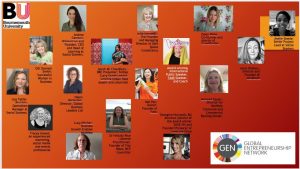

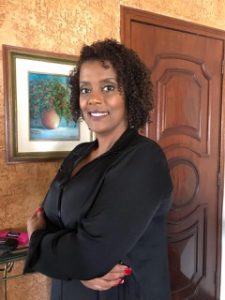
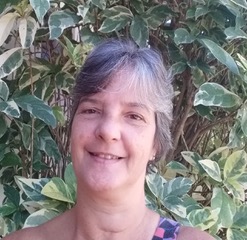

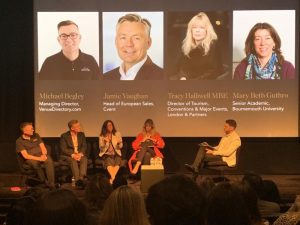
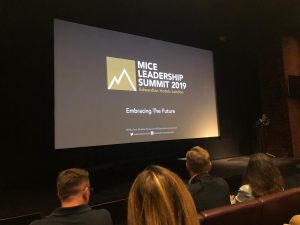
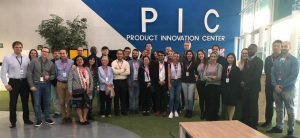
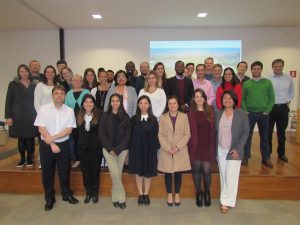
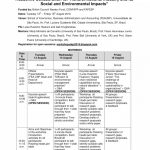
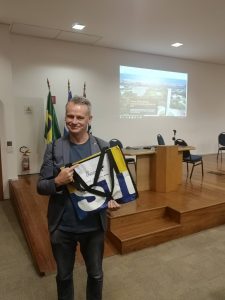





 All rivers lead to the sea, which is why it is important to consider the health of both our rivers and oceans. To celebrate the United Nations’ World Oceans Day 2019 (
All rivers lead to the sea, which is why it is important to consider the health of both our rivers and oceans. To celebrate the United Nations’ World Oceans Day 2019 (










 New weight change BU paper
New weight change BU paper One week to go! | The 16th Annual Postgraduate Research Conference
One week to go! | The 16th Annual Postgraduate Research Conference Geography and Environmental Studies academics – would you like to get more involved in preparing our next REF submission?
Geography and Environmental Studies academics – would you like to get more involved in preparing our next REF submission? Congratulations to three former BU staff
Congratulations to three former BU staff MSCA Staff Exchanges 2024 Call – internal deadline
MSCA Staff Exchanges 2024 Call – internal deadline Applications are now open for 2025 ESRC Postdoctoral Fellowships!
Applications are now open for 2025 ESRC Postdoctoral Fellowships! Horizon Europe – ERC CoG and MSCA SE webinars
Horizon Europe – ERC CoG and MSCA SE webinars MaGMap: Mass Grave Mapping
MaGMap: Mass Grave Mapping ERC grants – series of webinars
ERC grants – series of webinars